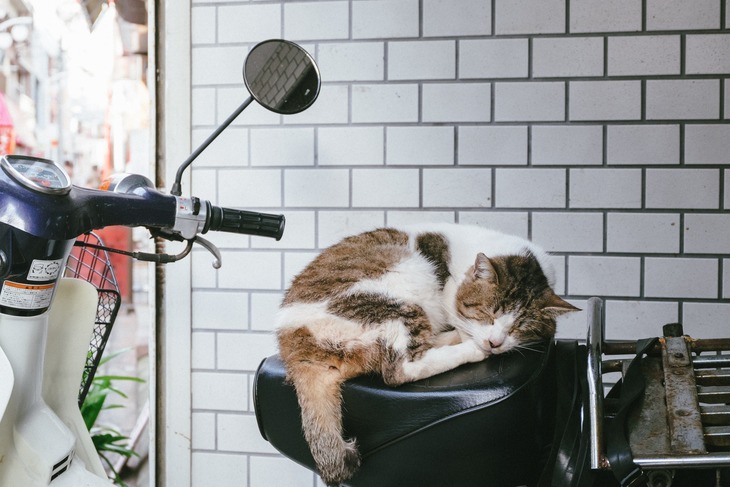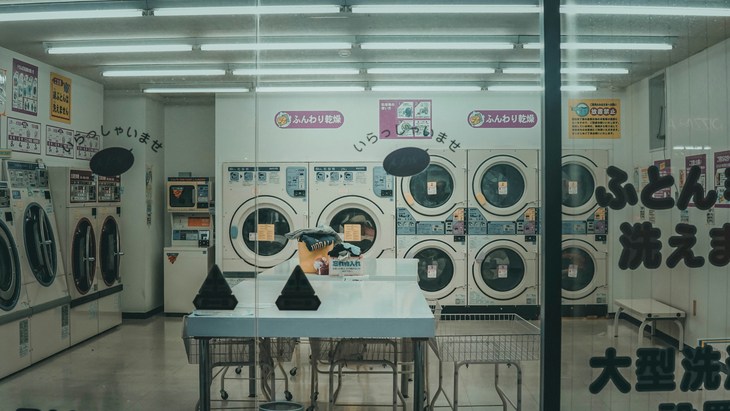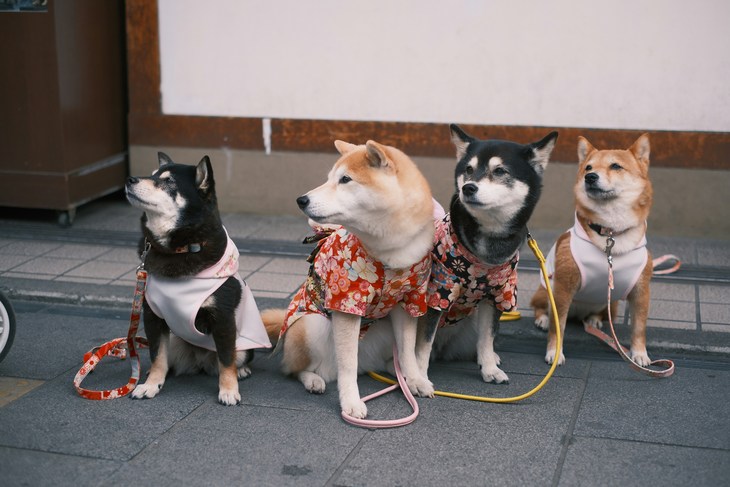A Guide to Owning a Pet in Japan
While still not as widespread as in many other countries, having a pet is becoming more and more common in Japan. With this increase in popularity, it is becoming easier to provide all the luxuries and comforts to your pet that you would have in your home country.
However, there are important things you should take into consideration if you are planning to buy or adopt a pet in Japan, or if you are moving to Japan and intend to bring your pet with you from overseas. So let's take a look at what you need to know if you want to have a furry friend in Japan, what vaccines and registration you'll need to get for your pets, and introduce some English-speaking vets in the Tokyo area.
What You Need to Know
There's a lot to know about pet culture and rules in Japan that may be similar or different to that of your home country, so let's dive into some important points about having pets in Japan.
・Registering and Chipping New Pets is Mandatory
As of 2022, microchipping new dogs and cats that you buy or adopt is mandatory in Japan. Note that if you already own your pet, chipping is not mandatory. Still, if you want to have a better chance of finding your pet if they get lost, it's a good idea to get them chipped anyway.
If you have a dog, you will need to register it and notify your local city hall or ward office. Do this as soon as possible if you are bringing your dog from abroad or buying one in Japan.
・Make Sure Your Pets Are Vaccinated!
It is important to make sure that your pets are vaccinated, whether you buy them in Japan or bring them from abroad.
Rabies vaccinations are mandatory for dogs over 91 days old and must be administered annually. Veterinarians can administer the rabies vaccine, and there are also mass vaccination sites organized in some cities. After your dog is vaccinated, you'll receive a tag that you must attach to your dog's collar.
While vaccinating cats is not mandatory in Japan, there are many basic vaccinations that the government recommends all cat owners get for their pets. These vaccinations are usually given from eight weeks of age, with three more doses given every 3-4 weeks. After that, it is common to get booster shots for your cat every 1-3 years.
・Pet Size Matters
Living space in Japan is generally limited unless you are wealthy or living in the countryside. Homes tend to be smaller than what you might find in countries like the United States, and usually, houses won't have big backyards or front yards where pets can run around.
This means that in large cities like Tokyo, small dogs and cats are far more common pets. Many places in Japan simply don't have the space needed to house large dogs comfortably, so keep that in mind if you're thinking about buying a dog or bringing one with you.
・Pet-Friendly Apartments are Hard to Come By
In Japan, the reality is that it is difficult to find rental properties where pets are allowed. While in other countries the norm may be for pets to be allowed unless explicitly stated otherwise, in Japan the opposite is true.
While it depends on the building, apartment management companies or the other residents of condominiums may have decided that they don't want any pets in the building. So even if you own your apartment, you won't be able to keep any pets.
Some "pet-friendly" apartment buildings are only friendly to some pets, meaning that they may, for example, only allow you to keep one small dog. Some apartments may not allow cats or more than one pet, so even if an apartment is "pet-friendly" you need to confirm to what extent they allow pets.
You could be evicted or have to pay a penalty fee if you are caught having pets in an apartment that does not allow them, so be careful. That being said, don't be discouraged! It is entirely possible to find pet-friendly apartments in Japan, but the reality is that your options will be much more limited.
・People Always Clean Up After Their Pets
Pet owners in Japan tend to be very good about cleaning up after their pets, both inside and outside the home. In fact, it is very rare in Japan to see dog droppings on city streets.
If you have a dog and live in an apartment or a house that doesn't have a garden, you can buy large, absorbent odor-blocking pads that your pet can use to relieve themselves.
Outdoors, people are very careful about always cleaning up after their dogs when out for walks. You will often see dog owners carrying both plastic baggies to pick up after their pets as well as bottles of water to pour over the area where their dog did their business (no matter what kind of business it was) to further clean up that spot.
・Vets and Kennels Have Different Names
If you are searching for a vet or trying to find a kennel to keep your pet while you take a trip, you may have a hard time finding one if you are specifically searching for "kennel" or "vet."
In Japan, veterinarian clinics are usually called "animal hospitals." As for kennels, you'll want to leave your pet at a "pet hotel."
・Traveling with Pets on Public Transportation
Japan has many rules surrounding taking pets on public transportation, and different companies have different policies, so it is important to check the rules beforehand. Here are some general guidelines that may or may not apply depending on the company.
Trains: Many railway companies allow small animals on board, but they must be inside a fully closable carrier bag. If any part of the pet is sticking out of the bag, they won't be allowed on board.
Buses: Generally, pets are not allowed on buses unless they are a service dog.
Planes: Many airlines allow pets on domestic flights, but they must be placed in carrier bags. There are usually restrictions on the weight and size of the carrier bag.
Veterinarians with English-Speaking Staff
If you live in the Tokyo area, there are many English-speaking veterinarian options all over the city. Here are a few of the popular vets with English support in Tokyo.
・Westcross Veterinary Hospital (Meguro, Tokyo)
This vet provides medical care for dogs, cats, and ornamental fish. They provide variious medical services, including general medical care and surgery. It also has specialized centers for cancer treatment and cardiovascular care.
Westcross Veterinary Hospital Website
・Crown Animal Hospital (Bunkyo, Tokyo)
This vet provides care for cats and dogs. In addition to general medical care and surgery, the hospital offers dental care and nutritional counseling for pets.
・Japan Animal Medical Center (Shibuya, Tokyo)
The hospital provides emergency and critical care services in its intensive care unit alongside general care. They also offer a kennel and a grooming salon at the same location.
Emergency care is available 24/7, but there may be longer waiting times at night. Extra charges apply for emergency care. Not all staff speak English, so it's best to call ahead. Filling out an English form on the website in advance is necessary.
Japan Animal Medical Center Website
・Toranomon Animal Hospital (Minato, Tokyo)
Toranomon Animal Hospital provides medical services for a wide range of animals, including dogs, cats, rabbits, hamsters, and other small animals. It offers general medical care, surgery, dental care, dermatology, and ophthalmology services. They also have a kennel on-site. Making an appointment in advance and confirming availability by phone is recommended.
Toranomon Animal Hospital Website
・Daktari Animal Hospital
Daktari Animal Hospital provides medical services for an extensive range of pets including dogs, cats, exotic animals (such as rabbits, ferrets, hamsters, guinea pigs, etc.), birds (such as parakeets, finches, etc.), turtles, monkeys, squirrels, and more. There are three locations in Tokyo, and a reservation is required before bringing in your pet. The Tokyo Medical Center location also provides 24-hour emergency medical treatment.
Daktari Animal Hospital Website
If you do find yourself needing to visit a vet, be sure to bring any previous test results or medical history you may have with you to help the vets have a better understanding of your pet's needs. If you bring a dog to the vet, you'll need to bring an owner's ID you will be given when you register your dog at your local city hall or ward office. If you forget this, you may be denied service, so be careful!
Good Luck!
If you decide to get a pet in Japan, there are many pet stores and animal shelters from which you can buy or adopt a pet.
If you are planning on bringing your pet or pets from your home country, make sure that your pets meet all the conditions required to enter Japan, or you may not be allowed to bring them in. You'll need to make sure your pet is microchipped and has all the vaccines, blood tests, and licensing required by the Japanese government, along with the documentation to prove it. This can be a long process, so be sure to take the time to do your research and carefully make sure your pet can enter Japan so that you aren't met with heartbreak upon arrival!
While Japan is accepting of pets, their rules and customs may be different from your home country. Now that you know about these differences, the decision to bring your pets from abroad or buy one in Japan should be easy.




























